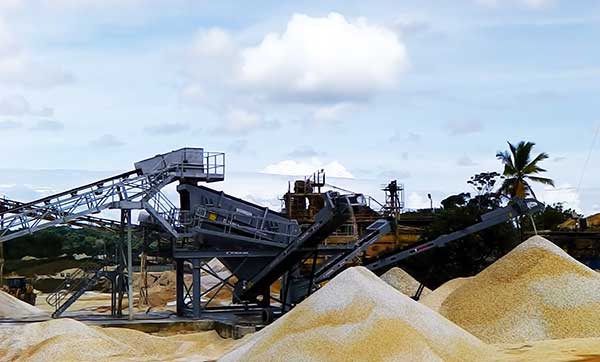9 Skills & 9 Taboos In Excavator Daily Maintenance
Regular maintenance of the excavator can reduce the failure of the machine, prolong the service life of the machine, improve the work efficiency and reduce the operation cost, so as to reduce the failure by 60%. So what should we pay attention to in daily maintenance? Here are some skills and taboos in daily maintenance.
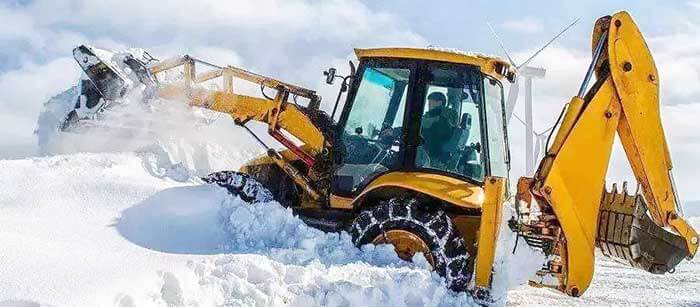
9 Skills in Excavator Maintenance
1. Engine Maintenance
Excavators need to change the engine oil regularly. The new oil is usually neutral and will not corrode the metal parts of the engine. The excavator that has been shut down for more than half a year needs to be replaced with new engine oil. It is better to fill the fuel tank with diesel to avoid rusting of the fuel tank. If possible, preservatives should also be added.
During shutdown, the engine shall be started every half a month, and the starting time shall not be less than half an hour. (make sure that the antifreeze is filled up before starting, and the antifreeze needs to be replaced once a year) make the machine run for a short distance, and make the lubricating parts establish a new oil film to prevent rust.
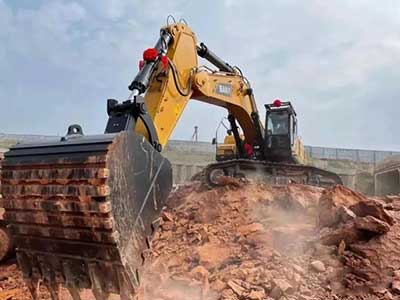
2. Battery Maintenance
When the excavator is parked for a long time, remove the battery line to prevent feeding. Place the battery in a dry and antifreeze place and keep its surface clean and dry. During installation, connect the positive wire first and then the negative wire to prevent short circuit during disassembly and assembly of the battery. Lead acid batteries should be charged once a month.
3. Air Filter Element Cleaning
The intake system of the engine is mainly composed of air filter element and air inlet. According to different use conditions, clean the air filter element regularly. The air filter element generally needs to be replaced after cleaning for 3 times and cannot be used for a long time.
4. Oil Filter Cleaning
The excavator oil filter is a component with low maintenance cost. Strengthening the cleaning of the oil filter and replacing the filter element in time can avoid the deterioration of the oil in a short time.
5. Hydraulic Inspection
Replace the hydraulic oil, oil return filter element and pilot filter element according to the specified maintenance cycle, and pay attention to whether the filter element adsorbs iron filings, copper filings, etc. When using the crusher, the deterioration of hydraulic oil is accelerated, and the replacement cycle should be shortened. Do not work without oil for a long time. After replacing the hydraulic oil or hydraulic components, pay attention to exhaust the air.
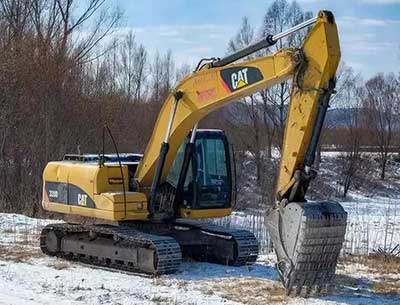
6. Electrical Maintenance
Pay attention to waterproof, do not involve deep-water operation, and do not wash electrical parts directly with water during cleaning. Do not stack sundries in the battery box, especially metal tools, which is easy to cause fire.
The gear oil of slewing reducer and traveling reducer shall be changed periodically. Pay attention to clean the soil and sundries in the pin shaft and add butter. During wading operation, when water overflows the rotary gear ring, pay attention to replace the grease in the rotary gear ring.
7. Anti Rust Treatment
When the excavator is parked for a long time, the exposed metal part shall be coated with butter for rust prevention. For the rusty parts, it shall be determined whether to repair them by painting or repainting the whole machine according to the falling area of the antirust paint on the outer surface.
For the working devices of construction machinery, such as the bucket of loader and the scraper of grader, the antirust method for the exposed metal is to apply butter. If possible, the car clothes can be used for covering treatment to prevent paint aging.
8. Daily Maintenance is Essential
Check and adjust the track tension; Check the liquid level of front window cleaning fluid; Check and clean the air filter element; Check and adjust the excavator air conditioner; Clean the floor in the cab.
9. Pre Startup Inspection
Before starting the excavator, it is also necessary to check the liquid level of the coolant (add water), check whether the air filter element is blocked, check the engine oil level of the excavator, check the hydraulic oil level (add hydraulic oil), check the fuel level of the excavator (add fuel), check whether the horn is normal, check the lubrication of the bucket, check the water and sediment in the oil-water separator, etc.
9 Taboos in Excavator Maintenance (Must be Avoided)
1. Grease Abuse
Grease is commonly used in mechanical repair, which can play the role of lubrication and sealing. If the cylinder pad is coated with butter, there will be a gap between the cylinder pad, the cylinder head and the plane of the engine body. High temperature and high pressure gas is easy to impact the cylinder pad from here, destroy the cylinder pad and cause air leakage.
In addition, when the butter is at high temperature for a long time, it will also produce carbon deposition, resulting in premature aging and deterioration of the cylinder gasket. Therefore, do not apply grease when installing the cylinder gasket.

2. Piston Open Flame Heating
When installing the piston pin, the piston should be heated and expanded first. At this time, some maintenance personnel will directly heat the piston on an open fire, which is wrong. Open fire heating will cause uneven heating of the piston and easy to cause deformation; Carbon ash will also be attached to the piston surface, reducing the service life of the piston.
When installing the piston pin, heat the piston evenly in hot oil to make it expand slowly. Do not heat it directly with open fire.
3. Oil is Only Added But Not Changed
Engine oil is essential in the use of diesel engine, which mainly plays the role of lubrication, cooling, cleaning and so on. During the operation of the diesel engine, a lot of dirt will enter the engine oil. If it is only added but not replaced, it is eager to be put into use, which is easy to cause accidents such as tile burning and shaft holding.
4. Neglect To Check Plunger Stroke Allowance
The stroke margin of the plunger refers to the amount of upward movement of the plunger after it is pushed to the top dead center by the cam on the camshaft. Therefore, when maintaining and debugging the fuel injection pump, first check the stroke margin to determine whether the fuel injection pump is still allowed to be adjusted.

5. Suddenly Add Cold Water When The Water Tank is Boiling
Overload operation of the engine, poor heat dissipation or lack of water in the water tank will cause the water tank to boil. At this time, if cold water is added immediately, the cylinder head and cylinder block will burst.
6. The Bolts are Too Tight
During the disassembly and assembly of construction machinery, the bolts in many parts have specified torque requirements, such as transmission box, cylinder head, wheel hub, connecting rod and front axle. The tightening torque is specially specified in the manual and must not be changed at will.
7. Cylinder liner and Piston Do Not Match
In fact, there is a certain tolerance between the new piston sleeve and the new cylinder sleeve. The size grouping code of standard cylinder liner and piston must be checked during replacement, and Xi’an has the same grouping code.
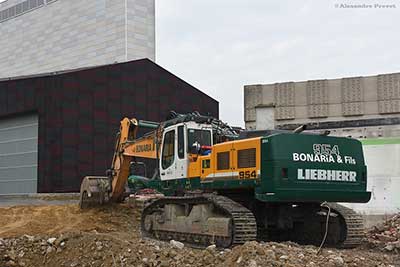
8. Operation Under low Temperature load
For a diesel engine that has not been started for a long time, due to the low body temperature and high oil viscosity, the oil is not easy to fill the friction surface of moving parts, which will cause serious wear of the machine.
In winter, after the diesel engine is started, it shall idle at low speed for several minutes, and then put into operation when the cooling water temperature reaches 60 ℃.
9. Premature or No Discharge of Cooling Water
The excavator shall run at idle speed before flameout, and drain water after the cooling water temperature drops below 60 ℃. If the air is cooled prematurely, cracks will appear and the air will be released suddenly. When discharging water, the residual water in the body shall be completely discharged to avoid freezing and expansion and cracking of the body.
There will be various faults during the use of the excavator. Regular maintenance and inspection can effectively reduce the occurrence of faults and prolong the service life of the excavator. Of course, the maintenance cycle and maintenance items will be different according to different models and the specific use of the excavator.
 Excavator Daily Maintenance Schedule
Excavator Daily Maintenance Schedule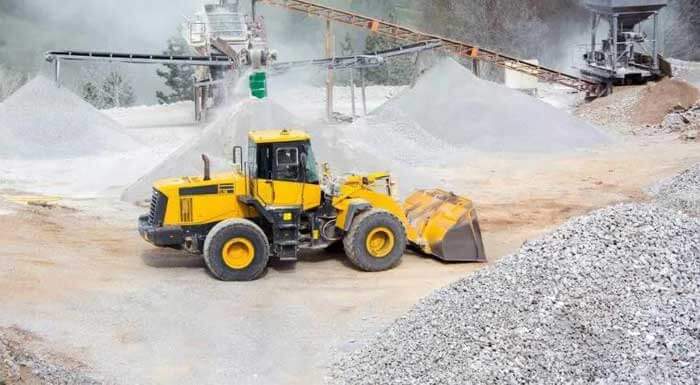 Loader Maintenance Checklist [Daily, Weekly, Monthly, Quarterly, Yearly]
Loader Maintenance Checklist [Daily, Weekly, Monthly, Quarterly, Yearly] How to improve The Excavator Bucket Teeth Service Life
How to improve The Excavator Bucket Teeth Service Life 20 Types of Excavator Buckets and How To Choose A Suitable Bucket
20 Types of Excavator Buckets and How To Choose A Suitable Bucket

